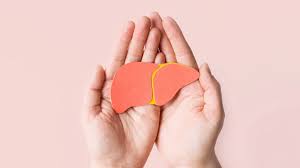The liver is the largest organ in the human body. It is responsible for regulating many chemical levels in the blood and the production of bile. This process helps in carrying away the waste matter from the liver. All the blood leaving the intestines and stomach passes through this organ. However, due to various factors, the liver might not be able to function correctly and may require treatments like medications and surgeries. One such surgery is liver transplant surgery.
Thanks to the developments in medical sciences and related fields, organ donation and transplantation have become a possibility. Thousands of patients across the globe now undergo successful liver transplants.
Let us know more about the procedure and how one can lead a healthier and improved lifestyle after having a liver transplant in India.
What is a Liver Transplant Surgery?
A liver transplant surgery is a life-saving procedure in which a diseased and failing liver is replaced by a healthy one. Usually, the people who require this surgery suffer from end-stage liver disease, acute liver failure, or liver cancer.
How Common is a Liver Transplant Surgery?
More than nine thousand people have undergone liver transplant surgery in the year 2021. In the same year, more than eleven thousand patients were on the waiting list for a donor. The majority of liver transplants performed are whole livers from deceased donors. Partial liver transplants from living donors are also on the rise.
Life After Liver Transplant Surgery
The patient would require intensive care for several days after the surgery. The transplant and healthcare team will keep a check on the patient’s condition and also lookout for any signs of complications post-surgery. The patient will be on several medications immediately after the procedure. The team would take blood samples to check if the new liver is functioning well. The team may also actively manage fluid/electrolyte balance, blood volume, and blood sugar levels through IVs.
Once the patient’s condition stabilizes, they will be relocated to a recovery unit where they will stay for one to three weeks, depending on their condition and recovery rate. After a couple of weeks, the incision stitches will be removed. Frequent checkups by the healthcare team are suggested even after the patient continues to recover at home.
Coping Strategies After Liver Transplant Surgery
Liver transplant surgery is not just a complicated procedure, but it can also be quite exhausting, both mentally and physically, for the patients and family members. Thus, your healthcare and transplant team may assist you with various coping strategies and useful resources that will help you get back on track and lead a healthy lifestyle. Some of these methods may include:
Awareness The most important thing is to educate yourself about the procedure and recovery process. Ask your healthcare team to know what you need to expect after the transplant.
Support Group for Patients
Joining a support group with other transplant recipients will help you talk about your thoughts, share your experience, and get answers to your questions. It would not only ease fears and anxiety, but it will also build a sense of confidence among the patients.
Rehabilitation Services
It is recommended to connect with rehabilitation services nearby for patients who have a severe weakness.
Lifestyle Changes
Liver transplant in India is not only a life-saving procedure but also a life-altering process. There are quite a few things that one needs to ensure post-surgery, such as:
Medication
Patients who have undergone organ transplants need to take immunosuppressants for all their life. The immune system helps in preventing infection from foreign invaders. Since the new organ might seem to be a foreign invader to the body, a suppressed immune system would help in accepting the new organ by the body better.
Based on the blood tests and checkups, the patient’s healthcare team will adjust the prescription accordingly.
Eating Habits, Diet, and Nutrition
Other than taking medicines, one’s eating habits also change after a liver transplant surgery. Transplant recipients should have a well-balanced diet. It will help them recover quicker and will also keep their new liver healthy. Usually, the patient should have a diet that is low in salt, cholesterol, fat, and sugar. One can also consult a dietician and get a nutrition plan to keep track of their eating habits.
Physical Activity
A transplant recipient should also exercise often and avoid leading a sedentary lifestyle. Low-impact strength training and activities like walking and cycling are recommended to help you lead an active and healthy lifestyle after the transplant. However, one should consult their healthcare team before starting or altering the intensity of their post-transplant exercise routine.
Conclusion
Liver transplant surgery might seem to be overwhelming to patients as well as their family members. But with the proper care and an expert healthcare team, you can ensure a successful procedure, quick recovery, and an improved lifestyle.
Read More Blogs:











